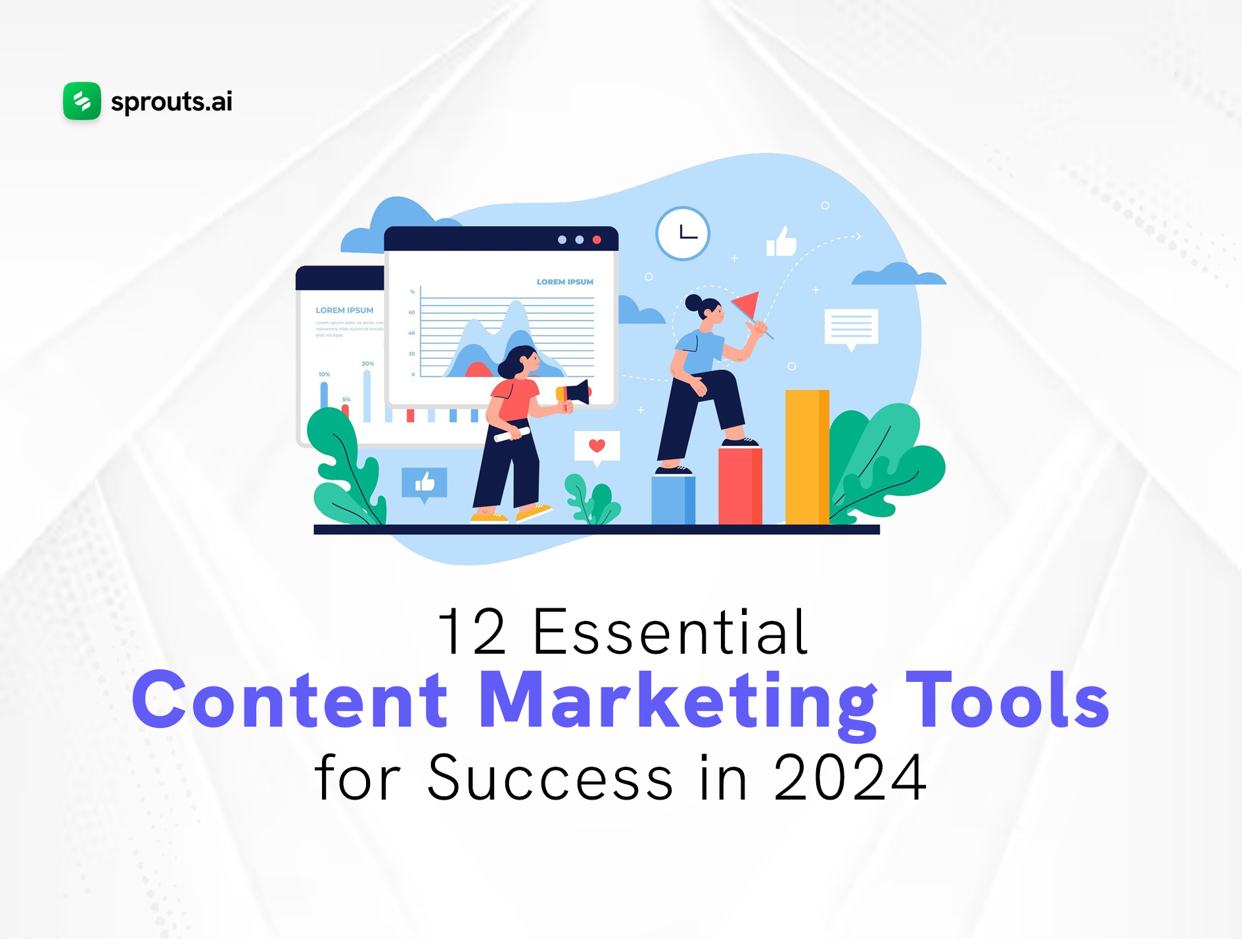Do you ever feel like there’s a never-ending list of content marketing tools out there, each promising to be the competitive advantage you need for success? While the right tools can elevate your content marketing strategy, managing content efficiency can appear challenging. But don’t worry, this blog cuts through the clutter, focusing on the 12 essential content marketing tools you need to master in 2024. Read the full blog!
- Content Management Systems (CMS): A robust CMS is the backbone of any content marketing strategy. Platforms like WordPress, Drupal, or HubSpot CMS empower marketers to create, manage, and publish content seamlessly. Look for features such as customizable templates, intuitive interfaces, and integrated SEO tools to optimize content for maximum visibility.
- SEO Tools: Search Engine Optimization (SEO) remains pivotal for driving organic traffic to your content. Tools like SEMrush, Moz, or Ahrefs provide comprehensive insights into keywords, backlink profiles, and competitor analysis, enabling you to refine your content strategy and improve search rankings.
- Social Media Management Platforms: With billions of active users, social media platforms are indispensable for content distribution. Tools like Hootsuite, Buffer, or Sprout Social help streamline social media management by scheduling posts, analyzing performance metrics, and engaging with your audience across multiple channels.
- Content Creation Tools: From captivating visuals to engaging videos, content creation tools empower marketers to craft compelling content that resonates with their audience. Tools like Canva, Adobe Creative Cloud, or Animoto offer user-friendly interfaces and versatile features to bring your creative vision to life.
- Email Marketing Software: Despite the rise of new marketing channels, email remains a powerful tool for nurturing leads and driving conversions. Platforms like Mailchimp, Constant Contact, or HubSpot Email Marketing provide intuitive interfaces, customizable templates, and automation features to optimize your email campaigns.
- Analytics Platforms: Data-driven insights are essential for measuring the effectiveness of your content marketing efforts. Tools like Google Analytics, Kissmetrics, or Mixpanel offer comprehensive analytics dashboards, allowing you to track key metrics, monitor user behavior, and identify opportunities for optimization.
- Content Curation Tools: Curating relevant content from across the web can help supplement your content efforts and establish thought leadership in your industry. Tools like Feedly, Pocket, or Flipboard enable you to discover, organize, and share curated content with your audience effortlessly.
- Project Management Software: Coordinating content creation workflows across teams requires effective project management tools. Platforms like Asana, Trello, or Monday.com provide centralized dashboards, task assignment features, and collaboration tools to streamline content production and ensure deadlines are met.
- Content Optimization Platforms: Optimizing content for engagement and conversions is crucial for maximizing its impact. Tools like Optimizely, Crazy Egg, or Unbounce offer A/B testing, heatmaps, and conversion rate optimization features to refine your content strategy and drive desired outcomes.
- Video Editing Software: With the growing popularity of video content, having access to reliable video editing tools is essential. Software like Adobe Premiere Pro, Final Cut Pro, or DaVinci Resolve empowers marketers to edit, enhance, and publish professional-quality videos that captivate and engage their audience.
- Content Collaboration Platforms: Collaborating with internal teams, freelancers, or external agencies requires efficient communication and project management tools. Platforms like Google Workspace, Microsoft Teams, or Slack facilitate real-time collaboration, file sharing, and communication, ensuring seamless coordination across distributed teams.
- AI-Powered Content Tools: Leveraging artificial intelligence (AI) can revolutionize your content marketing efforts by automating repetitive tasks and providing actionable insights. AI-powered tools like MarketMuse, Clearscope, or Grammarly offer advanced content optimization, language processing, and grammar-checking features to enhance the quality and effectiveness of your content.
- Interactive Content Platforms: Audience engagement is paramount, and interactive content platforms like Outgrow, Ceros, or SnapApp empower marketers to create immersive experiences that captivate and delight. From interactive quizzes and calculators to dynamic infographics and assessments, these tools enable you to drive deeper engagement and gather valuable insights about your audience’s preferences and behaviors.
- Content Distribution Networks (CDNs): Ensuring fast and reliable content delivery is crucial for enhancing user experience and maximizing reach. Content Distribution Networks (CDNs) like Cloudflare, Akamai, or Amazon CloudFront optimize content delivery by caching static assets, reducing latency, and mitigating traffic spikes. By leveraging CDNs, marketers can ensure that their content loads quickly across devices and geographic regions, improving performance and user satisfaction.
- Voice Search Optimization Tools: With the increasing prevalence of voice-enabled devices and virtual assistants, optimizing content for voice search has become essential. Voice Search Optimization (VSO) tools like VoiceSEO, AnswerThePublic, or SEMrush Voice Search enable marketers to identify and target voice search queries effectively. By optimizing content for natural language queries and conversational search patterns, marketers can enhance their visibility in voice search results and stay ahead of the curve.
While these tools provide the foundation for a successful content marketing strategy, remember, true content marketing excellence lies in understanding your audience and crafting content that resonates with their needs and interests. By leveraging data-driven insights, fostering collaboration, and continuously refining your approach, you can transform content marketing from a tactic into a powerful engine that fuels brand awareness, lead generation, and business growth.

